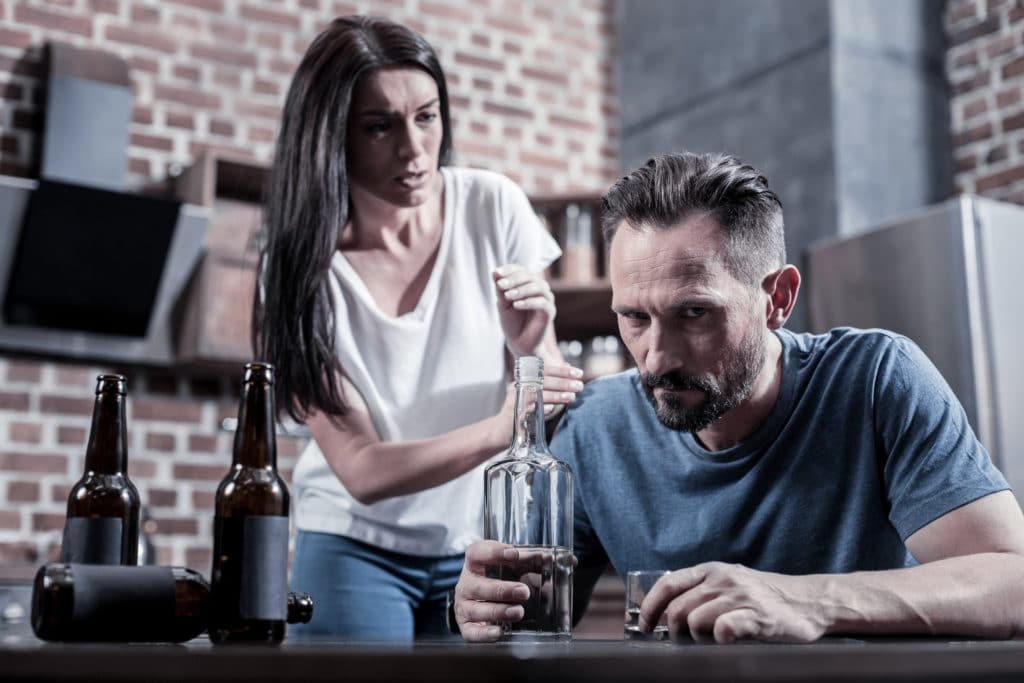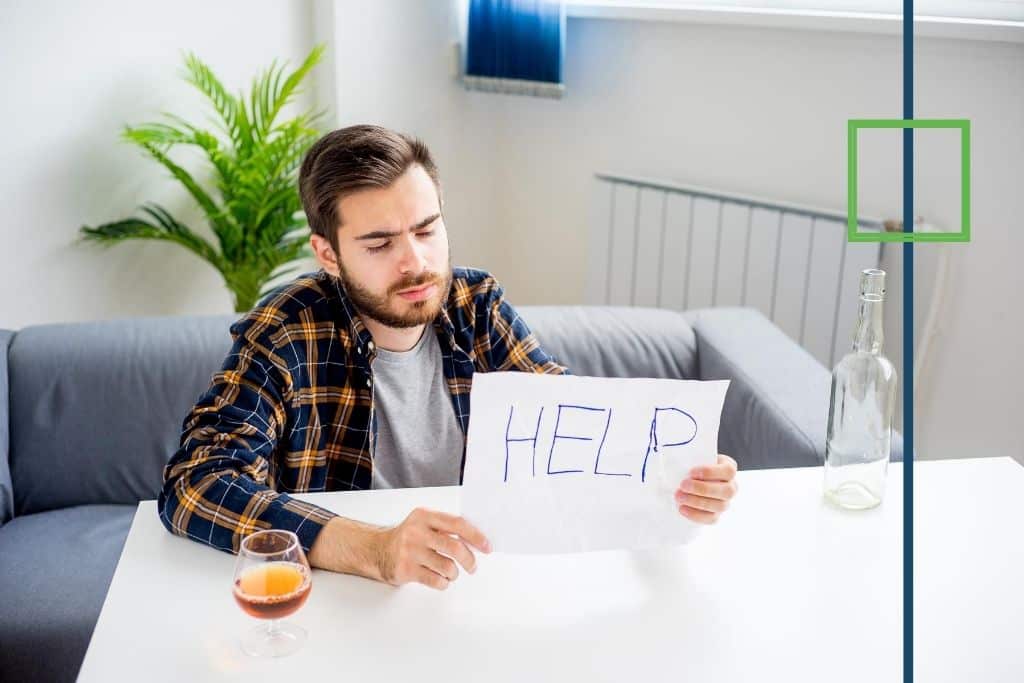Helping Someone with Drug Addiction and Depression
Learning How to Help Someone With Drug Addiction and Depression is very important in order for family and friends to deal with the difficult situation of having a loved one struggling with those issues in a healthier way. While it is important to set healthy boundaries between yourself and a person who is acting destructively, the company and support you can give to the person can be crucial with their recovery.
Helping a friend or loved one struggling with drug or alcohol addiction is often a long and heartbreaking journey. At times, it can be so overwhelming that ignoring the situation may seem like an easier solution. However, sweeping the issue under the rug can be damaging to you, your family, and the person you’re concerned about. As painful as it may be, it’s important that you take the time to encourage your loved ones to get the help they need. These are a few tips for helping someone with drug addiction and depression:

- Educate Yourself About Addiction: You see what you know. Until you have knowledge about addiction and the symptoms of drug abuse, it’s easy to miss the signs that are right in front of you. Addiction is complex, and it’s okay if you don’t know everything right away. However, taking the time to understand your loved one’s disease and how it affects them is incredibly beneficial to both you and your loved one. It also helps you be more aware of the signs that your loved one needs help.
- Offer Your Support: People with addiction don’t always understand how much their family and friends love them. Talk to your loved one about your concerns, and don’t wait for them to hit rock bottom to speak up. Let them know that you’re going to support them on their journey to recovery.
- Encourage Them to Get Help: As with other diseases, the earlier addiction is treated, the better. However, don’t be surprised if you’re met with denial or excuses as to why they can’t or won’t seek treatment. Be persistent about how important it is that they enter treatment for their addiction, but avoid making them feel guilty or ashamed in the process.
- Hold an intervention for your loved one: Although these are often difficult to do, an intervention may be exactly what your loved one needs if they’re deep into their addiction. Consider bringing in an intervention specialist to help you navigate this process.
- Support Recovery as an Ongoing Process: Once your loved one decides to enter treatment, it’s essential that you remain involved. Continue supporting their participation in ongoing care, meetings and participate in support groups for families of addicts. Be the support system that they need, and show them that you’ll be there every step of the way.
- Take Care of Yourself: Although you may see this as selfish, it’s incredibly important that you’re able to be there for others and make the best decisions possible. Make sure your own needs are met by getting enough sleep, exercising and eating well. Don’t be afraid to go to therapy to get help if you find yourself struggling due to your loved one’s drug addiction.
Understanding Drug Addiction and Depression
Drug Addiction
According to the National Institute on Drug Abuse, drug addiction is a chronic disease characterized by compulsive, or uncontrollable, drug seeking and use despite harmful consequences and changes in the brain, which can be long-lasting. These changes in the brain can lead to the harmful behaviors seen in people who use drugs. Drug addiction is also a relapsing disease. Relapse is the return to drug use after an attempt to stop.
The path to drug addiction begins with the voluntary act of taking drugs. But over time, a person’s ability to choose not to do so becomes compromised. Seeking and taking the drug becomes compulsive. This is mostly due to the effects of long-term drug exposure on brain function. Addiction affects parts of the brain involved in reward and motivation, learning and memory, and control over behavior. Addiction is a disease that affects both the brain and behavior.
Signs of drug Addiction
On the report of DrugAbuse.com in the piece ‘Symptoms and Signs of Substance Abuse’, some of the most noticeable symptoms of drug use are those that affect certain physiological processes. For example, a body’s tolerance to a drug develops when a drug is used long or often enough that it adapts to the consistently elevated presence of the substance. When tolerance grows, increased quantities or strengths are required to achieve the previous effects.
Individuals using a drug to get high may come to take such large doses to overcome their tolerance that they place themselves at increased risk of potentially fatal overdose. Changes in appearance can be additional clues to possible drug use and may include:
- Bloodshot or glazed eyes
- Dilated or constricted pupils
- Abrupt weight changes
- Changes in hygiene
- Dental issues
- Skin changes
- Problems sleeping or sleeping too much
Signs will vary based on the substance and the method used (i.e., smoking, injection, etc.).
Depression
Over 350 million people suffer from depression worldwide, and only about 50% of these individuals will ever receive treatment, as stated by the American Addiction Centers, in the piece ‘Depression & Substance Abuse’. In the United States, over 15 million adults experience an episode of clinical depression in any given year—close to 7% of the population.
Depression can have an impact on physical and emotional wellbeing, as well as personal relationships, occupational status, and financial health. But how does depression differ from a long case of the blues?
A mood disorder like depression is not the result of bereavement or a personal setback, such as the death of a loved one or loss of a job, but a chronic, progressive illness that may get worse without treatment.
The only way to treat this serious disorder effectively is through professional therapeutic interventions, such as behavioral modification, support groups, motivational therapy, and antidepressant medications.
Symptoms of Depression
Unlike ordinary sadness or grief, which can occur temporarily after a loss, the symptoms of depression occur nearly every day for weeks—sometimes months or years—interfering with all aspects of an individual’s life. Depression comes in many forms. If you believe you or a loved one is suffering from depression, you can always contact We Level Up Treatment Center to get a medical professional for an appropriate diagnosis.
To meet the diagnostic criteria for depression established by the Diagnostic and Statistical Manual of Mental Disorders, Fifth Edition (DSM-5), a person must experience 5 or more symptoms of the disorder almost every day for at least 2 weeks. They include:

- A low, depressed mood
- A loss of pleasure or interest in daily activities
- Persistent feelings of self-hatred, worthlessness, or guilt
- Sleep disturbances, such as sleeping too much or too little
- Unintentional weight loss or gain
- Physical fatigue
- Low energy levels, with slower than usual responses and movements
- Problems with concentration or memory
- Persistent, intrusive thoughts about death or dying
- Suicidal thoughts or suicide attempts
The symptoms of depression can cause noticeable problems with work, school, family life, and social relationships. People experiencing a depressive episode may have trouble getting out of bed in the morning due to a lack of energy, fatigue, and a loss of motivation.
They may lose interest in hobbies or pursuits that they were once passionate about or avoid activities that used to give them pleasure. They may be frequently tearful, talk about harming themselves, or become obsessed with thoughts and images of death.
For the loved ones of a depressed person, dealing with the symptoms can be both frightening and frustrating. It’s normal to try to cheer up a friend or to encourage them to “snap out of it”; however, depressive symptoms do not respond to these offers of help.
Connection between drug addiction and depression
Depression can increase the risk of chronic illness, including the disease of substance abuse. Up to a third of clinically depressed people engage in drug or alcohol abuse. These chemical intoxicants can become a form of self-medication for soothing the feelings of low self-worth, hopelessness, and despair that characterize this mental health disorder.
Although the user may rely on substances used to relieve symptoms of depression, chemical intoxication can actually make depressive episodes more severe, increasing the frequency and intensity of negative thoughts and self-destructive behavior.
A rehab program that addresses both depression and addiction may help to stop the progression of both disorders and empower the individual to build a healthy, sober life in recovery.
Research has revealed that many of the factors that contribute to depression also play a part in substance use disorders. These are known as co-occurring disorders or dual diagnoses. Depression and addiction frequently involve:
- Imbalances in brain chemistry
- Family history
- Past trauma
In addition, the physical and psychological effects of addiction may mask the signs of depression or worsen the symptoms of this psychiatric illness.
There’s a strong connection between alcoholism and major depression. In a nationwide study of 43,093 adults 18 years old and over, researchers found that for those suffering from current alcohol addiction, there was evidence that over 20% of them also met the criteria for a comorbid major depressive disorder.
Survey respondents in search of treatment for an alcohol use disorder were over 40% more likely than the general population to have at least one mood disorder. Alcohol is a central nervous system depressant that may initially function as a stimulant, but that quickly intensifies feelings of lethargy, drowsiness, and depression. Alcohol use, which lowers inhibitions and impairs judgment, can also increase the risk that a depressed individual will attempt suicide.
Alcohol and drug abuse can worsen the course of a depressive disorder by aggravating the symptoms of depression, increasing the likelihood of hospitalization, and interfering with the course of treatment. Individuals who are being treated for depression while using drugs or alcohol are unlikely to see positive outcomes from therapy unless the substance abuse is taken into account and treated concurrently.
How to help someone with drug addiction and depression
Living with a family member or spouse who is in a depressive episode can be both painful and stressful. It’s natural for loved ones to feel helpless, frustrated, and even emotionally drained by their experiences dealing with depression. Approaching a relative or friend about depression and substance abuse is very hard, but it can also prevent serious harm to the individual.
Without help, it’s likely that the addictive disorder and the depression—both chronic illnesses—will continue to get worse until the individual becomes severely ill. It’s even possible that an intervention by loved ones may help to prevent a suicide attempt and save the individual’s life.
People struggling with depression often feel isolated, profoundly lonely, and powerless. Offering support and practical solutions could make an enormous difference in the way a depressed person feels about the future. Here are some tips by the American Addiction Centers, on how to talk to someone with a depressive disorder and substance use disorder:

- Be honest about the problem: Offering false reassurances or encouraging the individual to cheer up will not help the situation. People with depression cannot simply change their moods or their attitudes toward life—if they could, they would probably never choose to remain depressed.
- Be empathetic: It’s difficult to view life from the perspective of a seriously depressed person. Using empathy, or the ability to see the world through someone else’s eyes, can help reduce the frustration and impatience that family members may feel.
- Be nonjudgmental: When dealing with a person who has depression and an addictive disorder, it’s crucial to remember that both conditions are a form of illness, not lifestyle choices. Before criticizing another person who is depressed and abusing drugs or alcohol, remind yourself that these are symptoms of a disease that affects people from all walks of life.
- Be prepared to offer solutions: Depression is often characterized by low levels of motivation and an inability to make decisions. If your loved one agrees to get help, you should be prepared to offer specific resources and to help make arrangements to access those services.
The treatment of depressive disorders with co-occurring addiction can be challenging. Depressive symptoms such as low motivation, low self-worth, and a flat emotional affect may imitate the effects of chemical intoxication or withdrawal.
In order for the treatment team to distinguish between the effects of depression and substance abuse, the client must undergo a thorough psychiatric assessment. Although the major depressive disorder is one of the most serious, debilitating types of mental illness, it’s also very treatable with the right combination of therapeutic strategies. With the help of qualified, licensed mental health professionals, depressed individuals can be treated, and their families can recover hope for the future.
We Level Up Treatment Center can help you or your loved one
Drug Addiction and Depression are conditions that can cause major health, social, and economic problems that should not be taken lightly. We Level Up Treatment Center can provide you, or someone you love, the tools to recover from Drug Addiction and Depression at the same time with professional and safe treatment. Feel free to call us to speak with one of our counselors. We can inform you about this condition by giving you relevant information. Our specialists know what you are going through. Please know that each call is private and confidential.
Sources
[1] ‘Treatment Approaches for Drug Addiction DrugFacts’ – National Institute on Drug Abuse (Drugabuse.gov)
[2] ‘Symptoms and Signs of Substance Abuse’ – (DrugAbuse.com)
[3] Suffering from Drug Addiction and Depression? Drug Addiction And Depression » Drug Alcohol Addiction Rehab (welevelup.com)
[4] Diagnostic and Statistical Manual of Mental Disorders, Fifth Edition (DSM-5)
[5] Pettinati, H.M., & Dundon, W.D. (2011). Comorbid depression and alcohol dependence. Psychiatric Times, 28(6).